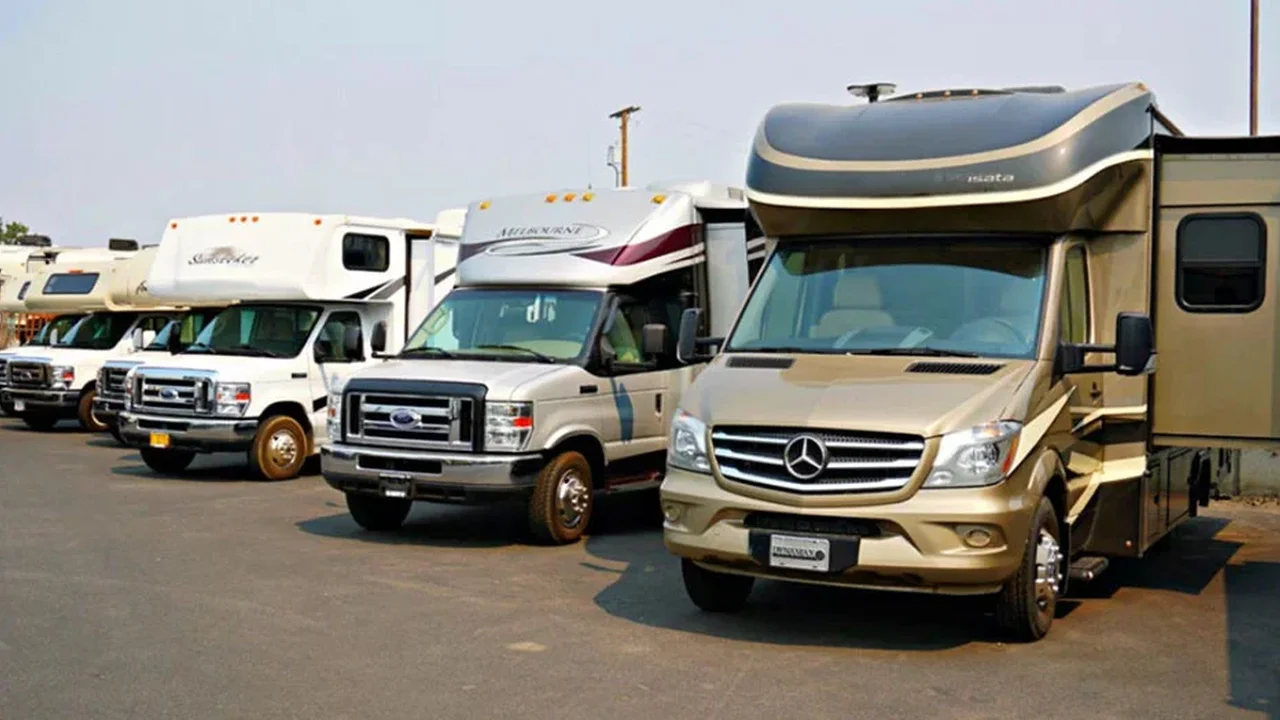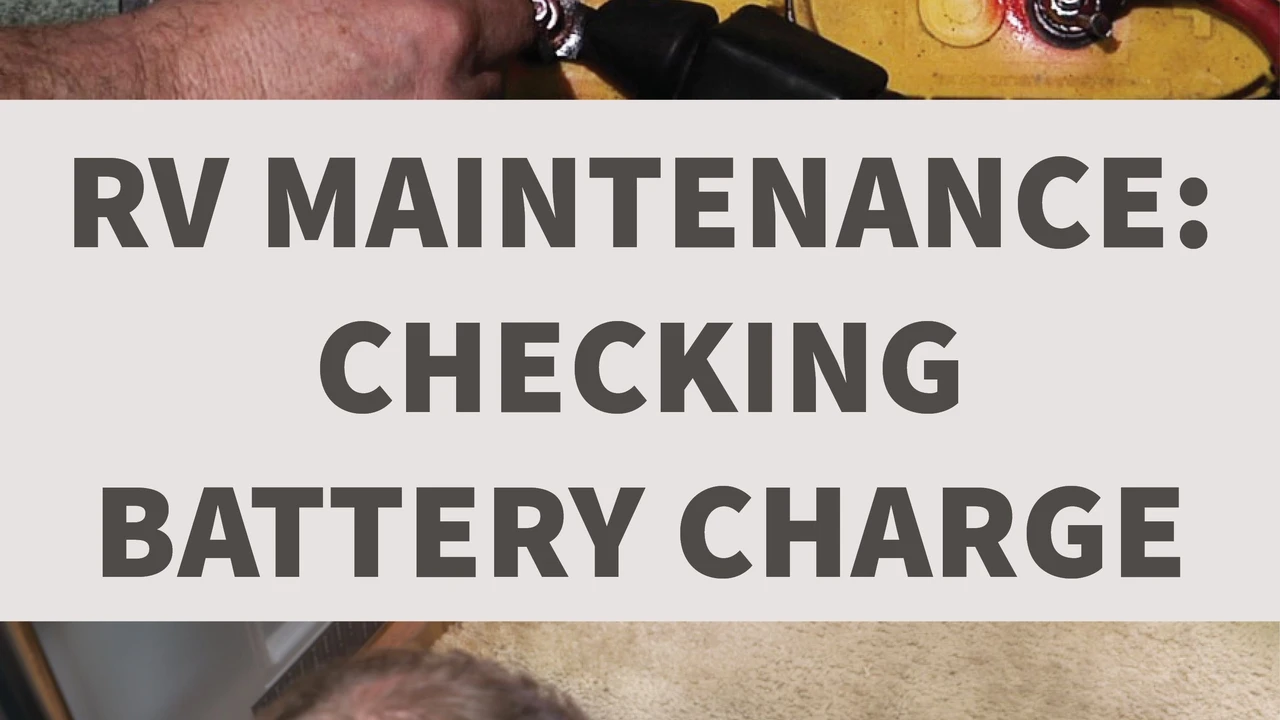New vs. Used RVs: Which is the Better Choice?

Understanding RV Classifications and Types
So, you're diving into the exciting world of RVs! First things first, let's get a handle on the different classes and types. This isn't just RV jargon; it's crucial for understanding what kind of RV fits your travel style and budget. We'll break it down simply, no confusing technical terms, promise.
Class A RVs: The Luxury Land Yachts
Think of Class A RVs as the kings and queens of the RV world. These are the big boys and girls, built on a commercial bus or truck chassis. They offer the most living space, amenities, and, well, everything! Imagine a rolling apartment, complete with a fully equipped kitchen, bathroom, sleeping quarters, and entertainment systems. They're designed for long-term travel and full-time living.
Pros of Class A RVs
- Space and Comfort: Unmatched living space, perfect for families or those who like to stretch out.
- Amenities: Expect all the comforts of home, including full kitchens, bathrooms, entertainment systems, and often even laundry facilities.
- Storage: Ample storage space for all your gear and belongings.
- Luxury Features: Many Class A RVs boast high-end finishes, advanced technology, and luxurious appointments.
Cons of Class A RVs
- Price: Class A RVs are the most expensive type of RV.
- Size and Maneuverability: Their large size can make them difficult to maneuver in tight spaces, such as campgrounds and cities.
- Fuel Efficiency: Fuel economy is typically low, requiring a significant budget for fuel costs.
- Maintenance: Maintenance and repairs can be expensive due to the complexity of the systems and the size of the vehicle.
Recommended Class A RV: Tiffin Allegro Breeze
The Tiffin Allegro Breeze is a great example of a manageable Class A RV. It's shorter and narrower than many other Class A models, making it easier to drive and park. It still offers a comfortable living space and all the essential amenities, but at a slightly lower price point than some of the larger, more luxurious options.
Tiffin Allegro Breeze Uses
- Long-Distance Travel: Comfortable for extended road trips and cross-country adventures.
- Family Vacations: Provides ample space for families to travel and camp together.
- Full-Time Living: Suitable for full-time RV living, offering a comfortable and self-contained living space.
Tiffin Allegro Breeze Details and Pricing
The Tiffin Allegro Breeze typically ranges in price from $250,000 to $350,000, depending on the model year, features, and options. It features a diesel engine, comfortable sleeping arrangements for up to four people, a fully equipped kitchen, and a bathroom with a shower. It's a well-built and reliable RV that's designed for comfortable and convenient travel.
Class B RVs: The Nimble Camper Vans
Class B RVs, often called camper vans, are the smallest and most agile of the RV classes. They're built on a van chassis and offer a more streamlined and compact living space. Think of them as the Swiss Army knives of the RV world – versatile, efficient, and ready for adventure.
Pros of Class B RVs
- Maneuverability: Easy to drive and park, even in cities and crowded campgrounds.
- Fuel Efficiency: Better fuel economy than larger RVs.
- Versatility: Suitable for both camping and everyday driving.
- Stealth Camping: Their discreet appearance allows for stealth camping in urban areas.
Cons of Class B RVs
- Limited Space: Cramped living space, not ideal for large families or extended stays.
- Fewer Amenities: Fewer amenities compared to larger RVs, such as limited kitchen and bathroom facilities.
- Storage: Limited storage space for gear and belongings.
- Price: Can be surprisingly expensive for their size, especially for models with advanced features.
Recommended Class B RV: Winnebago Revel
The Winnebago Revel is a popular Class B RV known for its off-road capabilities and rugged design. It's built on a Mercedes-Benz Sprinter chassis and features a 4x4 drivetrain, making it ideal for exploring remote and challenging terrain.
Winnebago Revel Uses
- Off-Road Adventures: Designed for exploring remote and challenging terrain.
- Weekend Getaways: Perfect for quick camping trips and outdoor adventures.
- Stealth Camping: Discreet appearance allows for stealth camping in urban areas.
Winnebago Revel Details and Pricing
The Winnebago Revel typically ranges in price from $180,000 to $220,000, depending on the model year and features. It features a diesel engine, a comfortable sleeping area, a small kitchenette, and a wet bath. It's a well-equipped and capable RV that's designed for off-grid adventures.
Class C RVs: The Balanced Mid-Sizers
Class C RVs strike a balance between the size and amenities of Class A RVs and the maneuverability and fuel efficiency of Class B RVs. They're built on a cutaway van chassis, with a distinctive cab-over bunk area. They're a popular choice for families and those who want a comfortable and capable RV without the price tag of a Class A.
Pros of Class C RVs
- Comfortable Living Space: More living space than Class B RVs, suitable for families.
- Amenities: Decent amenities, including a kitchen, bathroom, and sleeping quarters.
- Maneuverability: Easier to drive and park than Class A RVs.
- Price: More affordable than Class A RVs.
Cons of Class C RVs
- Fuel Efficiency: Lower fuel economy than Class B RVs.
- Cab-Over Bunk: The cab-over bunk can feel cramped and uncomfortable for some.
- Storage: Less storage space than Class A RVs.
- Handling: Can be prone to sway and body roll, especially in windy conditions.
Recommended Class C RV: Thor Chateau
The Thor Chateau is a popular Class C RV known for its affordability and family-friendly features. It offers a comfortable living space, a well-equipped kitchen, and a bathroom with a shower. It's a great option for families who are looking for a budget-friendly RV for their travels.
Thor Chateau Uses
- Family Vacations: Provides comfortable living space for families to travel and camp together.
- Weekend Getaways: Perfect for quick camping trips and outdoor adventures.
- Road Trips: Suitable for extended road trips, offering a comfortable and convenient travel experience.
Thor Chateau Details and Pricing
The Thor Chateau typically ranges in price from $80,000 to $120,000, depending on the model year, floorplan, and features. It offers a variety of floorplans to choose from, with sleeping arrangements for up to eight people. It's a well-built and reliable RV that's designed for comfortable and convenient travel.
Essential RV Features and Amenities
Now that we've covered the different RV classes, let's dive into the essential features and amenities you should consider when choosing an RV. These are the things that will make your RV experience comfortable, convenient, and enjoyable.
Kitchen Essentials for RV Cooking
Whether you're a gourmet chef or just like to whip up simple meals, a well-equipped kitchen is essential for RV living. Consider these key features:
RV Refrigerators: Size and Power Options
RV refrigerators come in various sizes and power options. The size you need will depend on the number of people you're traveling with and the length of your trips. Power options include:
- Propane/Electric: These refrigerators can run on either propane or electricity, offering flexibility when camping off-grid.
- 12-Volt DC: These refrigerators run on 12-volt DC power, making them ideal for use with solar panels or battery banks.
- Absorption Refrigerators: These refrigerators use heat to cool the contents, making them quiet and reliable.
RV Stoves and Ovens: Propane vs Electric
RV stoves and ovens also come in various options. Propane stoves are more common in RVs, as they offer a reliable source of heat even when camping off-grid. Electric stoves and ovens are becoming increasingly popular, especially in RVs that are equipped with solar panels or generator power.
RV Sinks and Faucets: Water Conservation is Key
When choosing an RV sink and faucet, water conservation is key. Look for low-flow faucets and sinks that are designed to minimize water usage. Also, consider the size and shape of the sink to ensure it's practical for washing dishes and preparing food.
Bathroom Considerations for RV Comfort
A comfortable and functional bathroom is essential for RV living. Consider these key features:
RV Toilets: Types and Waste Management
RV toilets come in various types, including:
- Gravity Flush Toilets: These toilets use gravity to flush waste into a holding tank.
- Macerating Toilets: These toilets use a macerator pump to grind waste before flushing it into a holding tank.
- Composting Toilets: These toilets use a composting process to break down waste, eliminating the need for a black water tank.
Waste management is also an important consideration. RVs typically have a black water tank for storing sewage and a gray water tank for storing wastewater from sinks and showers.
RV Showers: Size and Water Heating Options
RV showers come in various sizes and configurations. Consider the size of the shower and the amount of headroom it offers. Water heating options include:
- Propane Water Heaters: These water heaters use propane to heat water.
- Electric Water Heaters: These water heaters use electricity to heat water.
- Tankless Water Heaters: These water heaters heat water on demand, eliminating the need for a storage tank.
RV Sinks and Vanities: Storage Solutions
RV sinks and vanities should provide ample storage space for toiletries and other bathroom essentials. Look for models with built-in cabinets and drawers.
Sleeping Arrangements for a Good Night's Rest
A comfortable sleeping arrangement is essential for a good night's rest on the road. Consider these key features:
RV Mattresses: Size and Comfort Levels
RV mattresses come in various sizes and comfort levels. Consider the size of the mattress and the type of support it offers. Memory foam mattresses are a popular choice for RVs, as they conform to the body and provide excellent comfort.
RV Bunk Beds: Space-Saving Solutions
RV bunk beds are a great space-saving solution for families. They come in various configurations, including single bunks, double bunks, and even triple bunks.
RV Convertible Sofas and Dinettes: Versatile Options
RV convertible sofas and dinettes can be transformed into sleeping areas, providing versatile sleeping options for guests or family members.
Climate Control: Staying Comfortable in Any Weather
Climate control is essential for staying comfortable in any weather. Consider these key features:
RV Air Conditioners: Cooling Power and Efficiency
RV air conditioners come in various sizes and cooling capacities. Consider the size of your RV and the climate you'll be traveling in when choosing an air conditioner. Look for models that are energy-efficient and offer features such as adjustable thermostats and multiple fan speeds.
RV Heaters: Propane vs Electric Options
RV heaters come in various options, including propane heaters and electric heaters. Propane heaters are more common in RVs, as they offer a reliable source of heat even when camping off-grid. Electric heaters are becoming increasingly popular, especially in RVs that are equipped with solar panels or generator power.
RV Fans and Ventilation: Air Circulation is Key
RV fans and ventilation are essential for air circulation and preventing condensation. Look for models with multiple speeds and reversible blades.
Understanding RV Power Systems and Electrical Components
RV power systems can seem complex, but understanding the basics is crucial for safe and reliable operation. Let's break down the key components:
RV Batteries: Powering Your Adventures
RV batteries provide power to your RV's electrical systems when you're not connected to shore power. There are two main types of RV batteries:
Lead-Acid Batteries: Traditional and Affordable
Lead-acid batteries are the most common type of RV battery. They're relatively affordable and readily available. However, they require regular maintenance and have a shorter lifespan than lithium-ion batteries.
Lithium-Ion Batteries: Lightweight and Long-Lasting
Lithium-ion batteries are becoming increasingly popular in RVs. They're lighter, more energy-dense, and have a longer lifespan than lead-acid batteries. However, they're also more expensive.
RV Generators: On-Demand Power
RV generators provide on-demand power when you're not connected to shore power or have insufficient battery power. They're typically powered by gasoline or propane.
Gasoline Generators: Portable and Readily Available
Gasoline generators are portable and readily available. However, they can be noisy and require regular refueling.
Propane Generators: Quieter and More Efficient
Propane generators are quieter and more efficient than gasoline generators. They also produce fewer emissions. However, they require a propane tank and regulator.
RV Solar Panels: Harnessing the Sun's Energy
RV solar panels allow you to harness the sun's energy to power your RV's electrical systems. They're a great way to reduce your reliance on shore power and generators.
Solar Panel Types: Monocrystalline vs Polycrystalline
There are two main types of solar panels: monocrystalline and polycrystalline. Monocrystalline solar panels are more efficient but also more expensive. Polycrystalline solar panels are less efficient but more affordable.
Solar Charge Controllers: Regulating Power Flow
Solar charge controllers regulate the flow of power from the solar panels to the batteries, preventing overcharging and damage.
RV Inverters: Converting DC to AC Power
RV inverters convert DC power from the batteries to AC power, allowing you to run household appliances and electronics.
Pure Sine Wave Inverters: Clean and Reliable Power
Pure sine wave inverters provide clean and reliable power that's suitable for sensitive electronics. They're more expensive than modified sine wave inverters.
Modified Sine Wave Inverters: Affordable Option
Modified sine wave inverters are a more affordable option, but they may not be suitable for all electronics. They can cause some appliances to run less efficiently or even damage them.
RV Safety Features and Considerations
Safety should always be a top priority when RVing. Let's discuss some essential safety features and considerations:
RV Smoke Detectors and Carbon Monoxide Detectors
RV smoke detectors and carbon monoxide detectors are essential for protecting you and your family from fire and carbon monoxide poisoning. Make sure to test them regularly and replace the batteries as needed.
RV Fire Extinguishers: Choosing the Right Type
RV fire extinguishers should be readily available and properly maintained. Choose a fire extinguisher that's rated for all types of fires.
RV Tire Safety: Pressure and Maintenance
RV tire safety is crucial for preventing blowouts and accidents. Check your tire pressure regularly and make sure to maintain your tires properly.
RV Weight Limits: Staying Within Safe Boundaries
RV weight limits are important for ensuring the safe operation of your RV. Make sure to stay within the weight limits specified by the manufacturer.
RV Emergency Preparedness Kit: Essential Supplies
An RV emergency preparedness kit should include essential supplies such as food, water, first-aid supplies, and tools.
RV Insurance and Financing Options
RV insurance and financing are important considerations when purchasing an RV. Let's explore your options:
RV Insurance: Coverage Types and Considerations
RV insurance provides coverage for your RV in case of accidents, theft, or other damage. Consider the different types of coverage available, such as liability coverage, collision coverage, and comprehensive coverage.
RV Financing: Loan Options and Interest Rates
RV financing can help you purchase an RV if you don't have the cash to pay for it upfront. Compare loan options from different lenders and consider the interest rates and repayment terms.
RV Maintenance and Repair Tips
Regular RV maintenance and repair are essential for keeping your RV in good condition and preventing costly repairs. Here are some tips:
RV Roof Maintenance: Preventing Leaks
RV roof maintenance is crucial for preventing leaks. Inspect your roof regularly for cracks, holes, or other damage. Apply a sealant as needed.
RV Plumbing Maintenance: Preventing Clogs and Leaks
RV plumbing maintenance is important for preventing clogs and leaks. Flush your tanks regularly and use RV-safe toilet paper.
RV Appliance Maintenance: Keeping Things Running Smoothly
RV appliance maintenance is essential for keeping your appliances running smoothly. Clean your appliances regularly and have them serviced as needed.
Finding the Perfect RV for Your Needs
Choosing the right RV can feel overwhelming, but by understanding the different classes, features, and considerations, you can find the perfect RV for your needs and budget. Happy RVing!
:max_bytes(150000):strip_icc()/277019-baked-pork-chops-with-cream-of-mushroom-soup-DDMFS-beauty-4x3-BG-7505-5762b731cf30447d9cbbbbbf387beafa.jpg)





